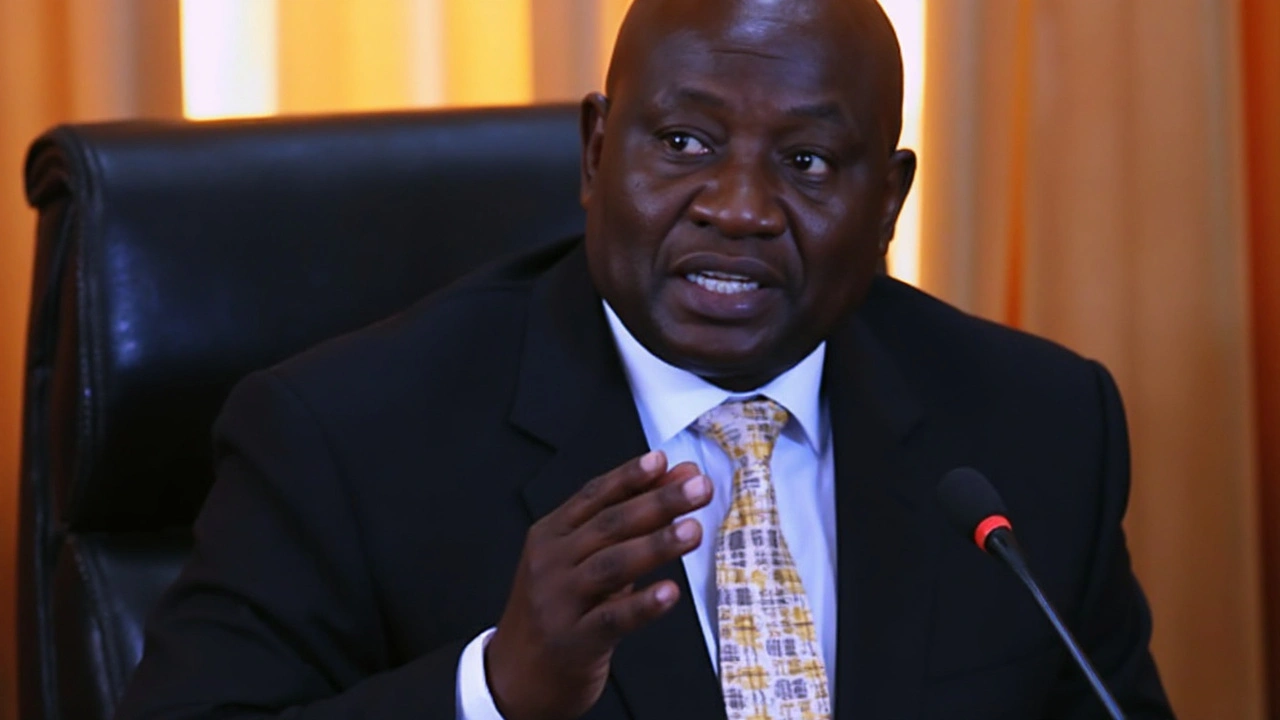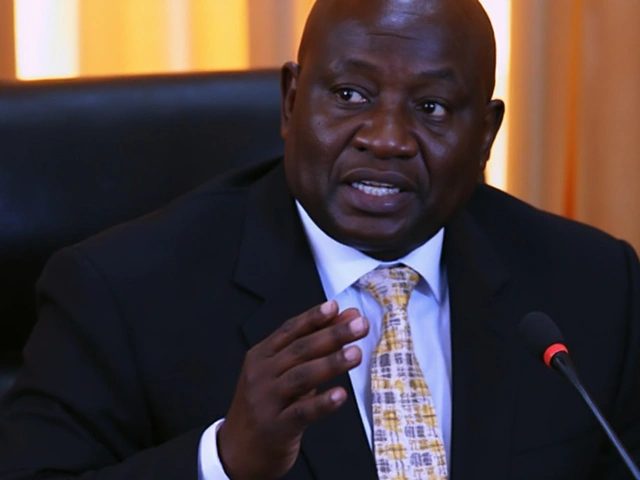
The political landscape of Kenya has experienced a significant loss with the demise of Baringo Senator William Cheptumo. The 57-year-old passed away at Nairobi Hospital after succumbing to an undisclosed illness. Cheptumo's journey reflected a blend of law and politics, leaving behind a commendable legacy.
Elected to the Senate under the UDA banner in 2022, William Cheptumo's win was notably against Gideon Moi, enhancing his reputation as a formidable figure in Kenyan politics. A trained lawyer, Cheptumo practiced his craft with diligence, showcasing his versatility by previously serving as the Member of Parliament for Baringo North from 2008 to 2013. His political career was deeply rooted in his community spirit and advocacy for public service.
In addition to his roles in the political arena, Cheptumo's expertise extended to significant legal positions. He contributed his legal mind to both the Central Bank of Kenya and the Industrial and Commercial Development Corporation, which built his profile as a potent force in both legal and developmental sectors.
His death on February 16, 2025, prompted an outpouring of tributes and mourning from leaders across the nation. President William Ruto, a political contemporary, shared his deep condolences, acknowledging Cheptumo as a progressive thinker whose work was aimed at uplifting community welfare. Ruto reminisced about Cheptumo's commitment to national service and his spirited drive for development.
Senate Speaker Amason Kingi also shared heartfelt words, pointing out Cheptumo’s dedication to the concept of devolution. Kingi emphasized how Cheptumo's engagements were laden with efforts to decentralize power, aiming to bring governmental operations closer to people at the grassroots level.
As his body rests at Lee Funeral Home, cheered memories of his vibrant presence fill many who recall his commitment and service. A dedicated public servant, Cheptumo's sudden departure leaves a void but also ignites inspiration among those who wish to follow his path in advocating for national development and public good.
His passing reminds many of the transient nature of life but also the lasting impact one's contributions can have on society. Cheptumo's legacy will undoubtedly influence aspiring politicians, legal minds, and those passionate about community advancement within and beyond Baringo.






Honestly, the whole write‑up feels like a mushy obituary paradoxically dripping with melodrama while flubbing basic commas. The phrase "passed away at Nairobi Hospital" could be tightened to "died at Nairobi Hospital" – much cleaner. And why sprinkle bold tags on his name when the entire piece is already dripping with pathos? Stop the theatrics and let the facts breathe.
Wow, Cheptumo really left a mark, huh? From the courtroom to the Senate, his vibe was like a vibrant paint splash across Kenyan politics. It’s wild how someone can juggle law and community projects and still stay grounded. Respect for the hustle.
Hey Sarah, I get the grammar grind – you’re spot‑on about the commas, but let’s not forget the human side. Cheptumo’s legal chops weren’t just academic; they translated into real policy that helped folks in Baringo. It’s cool to see someone use their lawyer brain for community upliftment. Keep the nitpicks coming, they make the piece sharper.
Cheptumo’s journey is a textbook case of how inclusive governance can spark grassroots innovation. His push for devolution was basically a masterclass in decentralizing power, turning top‑down mandates into bottom‑up solutions. The ripple effect on local entrepreneurship and youth empowerment can’t be overstated. Let’s keep his vision alive by championing community‑first policies.
The tribute is overly glorified.
Absolutely! This whole “progressive thinker” narrative is a classic smokescreen!!! The elite elite agenda pushes such obituaries to mask the underlying power grabs-don’t be fooled by the patriotic veneer!!! It's all about consolidating control under the guise of development!!!
When we reflect on the finite nature of existence, Cheptumo’s story becomes a microcosm of the broader human quest for meaning. He navigated the dual realms of law and politics, embodying the ancient philosophy that true power lies not in authority but in service. His legislative efforts mirrored the Aristotelian ideal of the "golden mean," balancing ambition with humility. By championing devolution, he echoed the Platonic notion of a just society where each individual contributes to the common good. In the realm of jurisprudence, his work at the Central Bank and the Industrial Development Corporation illustrates a pragmatic application of Kantian duty ethics-placing collective welfare above personal gain. Moreover, his career trajectory offers a compelling case study in existential authenticity, as he continually aligned his actions with his professed values, refusing to surrender to the nihilistic tide of political cynicism. The public mourning that followed his passing is not merely an outpouring of grief but a collective acknowledgment of the archetypal hero’s journey-departure, initiation, and return, albeit truncated. His legacy, therefore, is not confined to statutes or speeches; it resides in the intangible fabric of communal memory, a reminder that the impact of a life is measured by the ripples it creates in the pond of humanity. As future generations study his contributions, they will encounter a mosaic of ethical dilemmas, strategic decisions, and compassionate leadership, each offering lessons that transcend the Kenyan context. In this way, Cheptumo’s narrative becomes a universal allegory, urging all of us to consider how we might, in our own spheres, advance the twin pillars of justice and development. The humility he displayed, coupled with his steadfast commitment to public service, invites a renewed dialogue about the role of elected officials as custodians of societal progress rather than mere power brokers. Ultimately, his departure prompts an essential question: how will we, as individuals and as a collective, continue the work he began? The answer lies in our willingness to embody the very principles he championed-equity, inclusion, and the relentless pursuit of a better tomorrow.